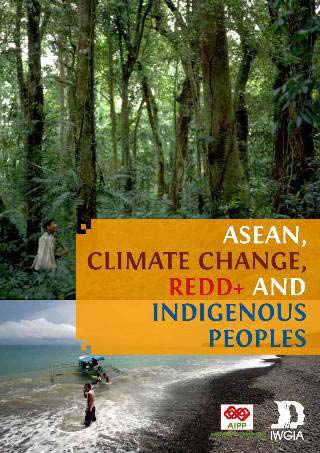State and Trends of the Carbon Market 2010
The carbon market endured its most challenging year to date in 2009. The global economic crisis, which started in late 2008 and intensified early in 2009, negatively impacted both the demand and supply sides of the market. As industrial output plummeted the demand for carbon assets fell.
State and Trends of the Carbon Market 2008
The carbon market is the most visible result of early regulatory efforts to mitigate climate change. Regulation constraining carbon emissions has spawned an emerging carbon market that was valued at US$64 billion (Euro 47 billion) in 2007. Its biggest success so far has been to send market signals for the price of mitigating carbon emissions.
State and Trends of the Carbon Market 2009
Over the past year, the global economy has cooled significantly, a far cry from the boom just a year ago in various countries and across markets. At the same time, the scientific community communicated the heightened urgency of taking action on climate change. Policymakers at national, regional, and international levels have put forward proposals to respond to the climate challenge.
State and Trends of the Carbon Market 2006 : Update, January 1-September 30, 2006
Carbon transactions are defined as purchase contracts or ERPAs (Emission Reductions Purchase Agreements) whereby one party pays another party in return for greenhouse gas (GHG) emissions reductions that the buyer can use to meet its compliance or corporate citizenship - objectives vis-a-vis GHG mitigation.
State and Trends of the Carbon Market 2006 : A Focus on Africa
Many African countries have thin energy and industrial sectors with limited opportunities to reduce carbon emissions, certainly relative to countries such as China and India.
Reducing Emissions from Deforestation and Forest Degradation (REDD) Projects : Lessons for Future Policy Design and Implementation
In response to the pressing global challenges of climate change, initiatives under the auspices of ‘reducing emissions from deforestation and forest degradation’ (REDD) have been implemented in over 30 developing and least-developed countries since 2005. The initiatives cover nearly every significant and vulnerable forest ecosystem worldwide.
Kosovo : Country Environmental Analysis
A Kosovo CEA is a World Bank analytical
tool used to integrate environmental issues into development
assistance strategies, programs, and projects. To that end,
the CEA synthesizes environmental issues, highlights the
environmental and economic implications of development
Economics of Adaptation to Climate Change : Ghana, Volume 1. Main Report
The report is organized as follows. The
next section puts the study into context by briefly
discussing the global EACC study and the EACC methodology,
which was applied in this study at a more disaggregated
level. The section highlights the differential impacts of
Economics of Adaptation to Climate Change : Ghana, Volume 2. Annexes
The report is organized as follows. The
next section puts the study into context by briefly
discussing the global EACC study and the EACC methodology,
which was applied in this study at a more disaggregated
level. The section highlights the differential impacts of
Environment Matters at the World Bank, 2007 Annual Review : Climate Change and Adaptation
This edition of environment matters
arrives just as the international community embarks on a
two-year process to secure a new global framework to limit
the amounts of greenhouse gases (GHGs) entering the
atmosphere and devise ways to help developing countries
ASEAN, Climate Change, REDD+ and Indigenous Peoples
Briefing paper informing about indigenous peoples in South East Asia, the impact of climate change and the possibilities and threats represented by REDD +. It considers the responses of the ASEAN regarding these global challenges and makes recommendation as to how ASEAN should promote and protect the rights of indigenous peoples in relation to climate change and climate change.


